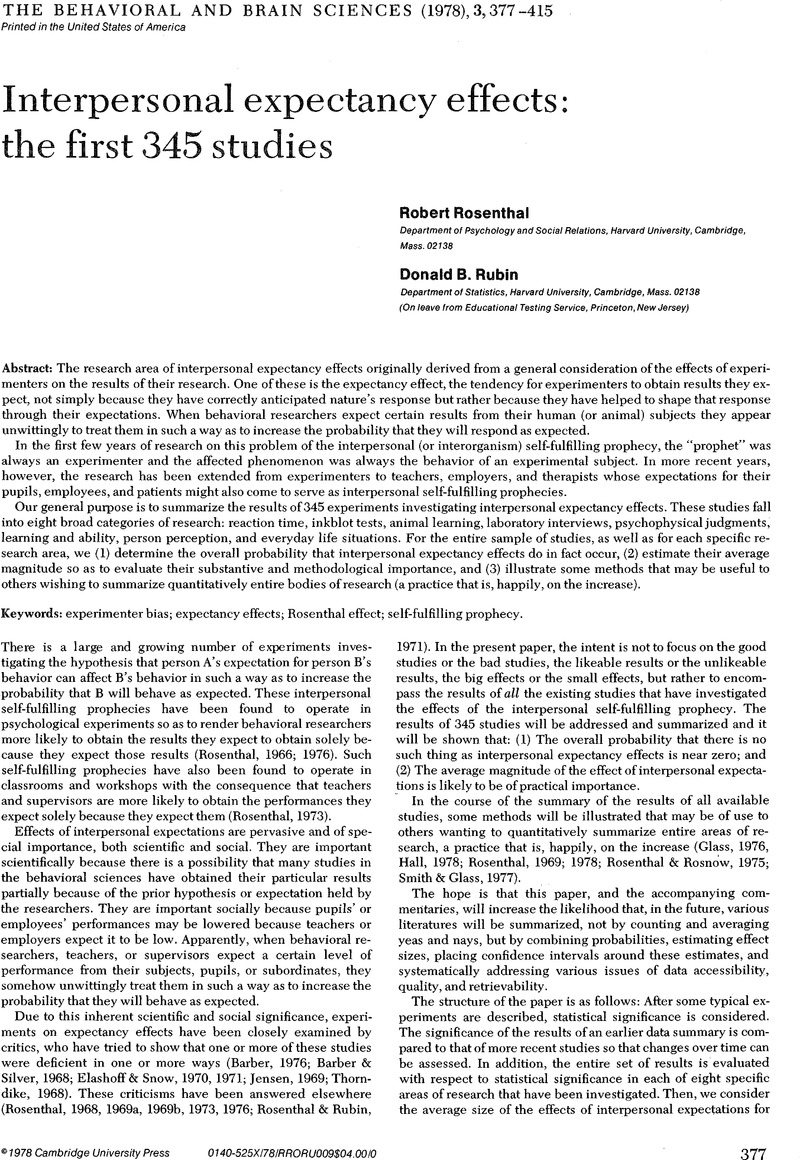Crossref Citations
This article has been cited by the following publications. This list is generated based on data provided by Crossref.
Hövelmann, Gerd H.
1987.
“Please wait to be tolerated”: Distinguishing fact from fiction on both sides of a scientific controversy.
Behavioral and Brain Sciences,
Vol. 10,
Issue. 04,
p.
592.
Donderi, D. C.
1987.
Orthodoxy and excommunication in science.
Behavioral and Brain Sciences,
Vol. 10,
Issue. 04,
p.
582.
Wolins, Leroy
1987.
Science and rationality.
Behavioral and Brain Sciences,
Vol. 10,
Issue. 04,
p.
617.
Bauslaugh, Gary
1987.
Psi and the unwilling suspension of belief.
Behavioral and Brain Sciences,
Vol. 10,
Issue. 04,
p.
569.
Alcock, James E.
1987.
Parapsychology: Science of the anomalous or search for the soul?.
Behavioral and Brain Sciences,
Vol. 10,
Issue. 04,
p.
553.
Sanders, John T.
1987.
Are there any “communications anomalies”?.
Behavioral and Brain Sciences,
Vol. 10,
Issue. 04,
p.
607.
Palmer, John
1987.
Are the conventional explanations of psi anomalies adequate?.
Behavioral and Brain Sciences,
Vol. 10,
Issue. 04,
p.
601.
Dybvig, Magne
1987.
Parapsychology as a search for the soul: Psi anomalies and dualist research programs.
Behavioral and Brain Sciences,
Vol. 10,
Issue. 04,
p.
583.
Tobacyk, Jerome J.
1987.
The psi controversy as a crystallization of the conflict between the mechanistic and the transcendental worldviews.
Behavioral and Brain Sciences,
Vol. 10,
Issue. 04,
p.
613.
Bunge, Mario
1987.
Why parapsychology cannot become a science.
Behavioral and Brain Sciences,
Vol. 10,
Issue. 04,
p.
576.
Tart, Charles T.
1987.
Is searching for a soul inherently unscientific?.
Behavioral and Brain Sciences,
Vol. 10,
Issue. 04,
p.
612.
Beloff, John
1987.
In what respect is psi anomalous?.
Behavioral and Brain Sciences,
Vol. 10,
Issue. 04,
p.
570.
Schmidt, Helmut
1987.
Alcock's critique of Schmidt's experiments.
Behavioral and Brain Sciences,
Vol. 10,
Issue. 04,
p.
609.
Nadon, Robert
and
Kihlstrom, John F.
1987.
Hypnosis, psi, and the psychology of anomalous experience.
Behavioral and Brain Sciences,
Vol. 10,
Issue. 04,
p.
597.
Broch, Henri
1987.
Struggle for reason.
Behavioral and Brain Sciences,
Vol. 10,
Issue. 04,
p.
574.
Spanos, Nicholas P.
and
de Groot, Hans
1987.
Psi: Repeatability, falsifiability, and science.
Behavioral and Brain Sciences,
Vol. 10,
Issue. 04,
p.
609.
Flew, Antony
1987.
Factual impossibility and concomitant variations.
Behavioral and Brain Sciences,
Vol. 10,
Issue. 04,
p.
586.
Beyerstein, Barry L.
1987.
Neuroscience and psi-ence.
Behavioral and Brain Sciences,
Vol. 10,
Issue. 04,
p.
571.
Feder, Kenneth L.
1987.
Anthropology and psi.
Behavioral and Brain Sciences,
Vol. 10,
Issue. 04,
p.
585.
Utts, Jessica
1987.
Psi, statistics, and society.
Behavioral and Brain Sciences,
Vol. 10,
Issue. 04,
p.
615.





